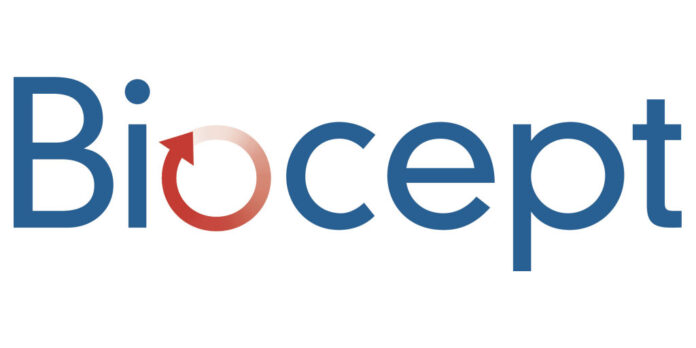SAN DIEGO– Biocept, Inc. (Nasdaq: BIOC), a leading provider of molecular diagnostic assays, products and services, today announced the presentation of a multi-institutional case series showing that its CNSide™ cerebrospinal fluid assay helps physicians monitor treatment response and detects actionable mutations in patients with metastatic breast cancer and leptomeningeal disease (LMD). The poster will be presented virtually at the Society for Neuro-Oncology Annual Meeting in Boston, Nov. 19, 2021, from 7:30-9:30 p.m. ET, and Biocept will be exhibiting at booth #303.
Breast cancer is one of the most common cancers associated with LMD, a devastating complication in which cancer spreads to the membrane surrounding the brain and spinal cord. The current standard of care for diagnosing LMD is through clinical evaluation, imaging and cytology, which have limited sensitivity. Median survival after a diagnosis of LMD is just two to three months.
The case series included four breast cancer patients, ages 32 to 57, with suspected LMD who were treated at four different institutions. CNSide and cytology were used in parallel to detect tumor cells in the cerebrospinal fluid at diagnosis and throughout treatment. CNSide was also used to determine tumor cell counts and the presence of HER2 amplification to help guide therapy. At diagnosis, CNSide detected cancer cells in three of three patients, compared with two of three patients for cytology. (The fourth patient was diagnosed before CNSide was available.) CNSide detected CSF tumor cells in all nine measurements taken, compared to five of nine using cytology. Throughout treatment, CNSide showed a decrease in CSF tumor cells in all four patients, ranging from 99.7% to 100%, corresponding with an improved clinical response.
“Having a quantitative assay that provides tumor cell counts, rather than just a positive or negative result, is a major advance in the management of patients with leptomeningeal disease,” said Priya Kumthekar, M.D., Neuro-Oncologist and Associate Professor of Neurology at Northwestern Medicine’s Feinberg School of Medicine, who will present the case series poster. “A positive cytology result may suggest that the patient is not responding to treatment, which could lead to therapy being stopped or changed. As this case series shows, CNSide’s quantitative results may show that, in fact, the tumor cell count has dropped dramatically, indicating that the patient is responding, and therapy should be continued.”
“These cases illustrate the value of CNSide in treatment response monitoring and identification of targets for therapy that can produce a sustained response in leptomeningeal disease,” said Michael Dugan, M.D., Chief Medical Officer and Medical Director of Biocept. “CNSide has the potential to allow clinicians to have more confidence in their treatment decisions, improving the clinical management of leptomeningeal disease in a way that may help patients see improvement in symptoms and live significantly longer lives.”


